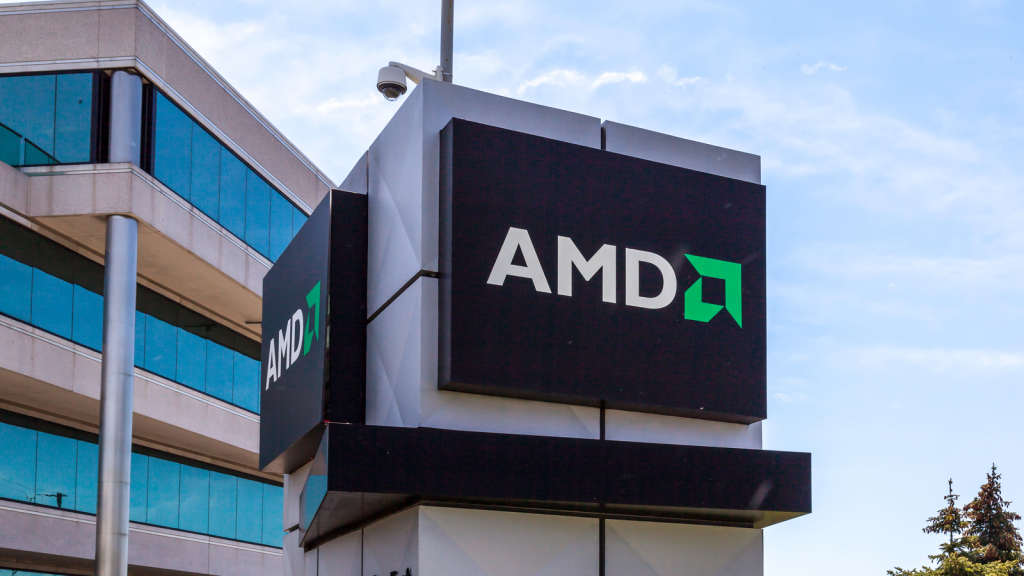After taking a drubbing through the first five months of 2022, Advanced Micro Devices, Inc. (NASDAQ:AMD) stock has rallied by nearly 19% since early May. What triggered the apparent turnaround?
On May 3, the company reported its first-quarter 2022 earnings. AMD destroyed Wall Street expectations for both revenue and earnings. Revenue was up 71% year-over-year, hitting $5.89 billion ($5.52 billion was expected). Adjusted EPS of $1.13 was up 117% year-over-year and beat the 91 cents analysts had been expecting. Guidance of $6.5 billion for Q2 also topped analyst projections.
It’s hardly surprising that AMD stock has gained strength in the wake of those results — although the way 2022 has gone, that was by no means a given. However, even at current prices, AMD shares are still an attractive buying opportunity for long-term growth investors. Here’s why.
| AMD | Advanced Micro Devices, Inc. | $105.28 |
AMD Analysis Tends to Focus on Several Areas
Much of the analysis around AMD’s growth prospects tends to focus on its Ryzen CPUs. These processors have helped AMD to gain ground in the PC market. The company’s CEO told CNBC that Q1 marked eight straight quarters of increased marketshare.
Another key growth area is in servers powered by AMD’s EPYC processors. Finally, semi-custom chips have been doing huge business thanks to Playstation 5 and Xbox Series X/S sales.
I’m as guilty as anyone for zoning in on those high-performance business segments.
Without a doubt, these have been a key part of the stellar AMD stock story over the past several years. And they will be a part of the company’s future growth. However, there is one area — tied in to these, and yet under-reported — that stands to be the biggest growth catalyst of all for AMD stock. That would be the metaverse.
The Metaverse Doesn’t Get the Same Billing As it Does for Rival Nvidia
The metaverse is rapidly becoming the next big thing and it is quickly showing signs of dwarfing all previous entries on that list. In March, Citi released an extensive report on the metaverse. It projected that by 2030, the total addressable market for the metaverse could hit between $8 trillion and $13 trillion.
That is an astounding number. In comparison, the current global value of the smartphone market is $409 billion.
When it comes to companies set to capitalize on this massive opportunity, AMD seldom gets singled out. Rival Nvidia (NASDAQ:NVDA), on the other hand, is frequently held up as a major benefactor. It has the most popular graphics chips, its GPUs are powering AI servers, and it has created its own metaverse content creation tool in Nvidia Omniverse.
However, AMD is set to benefit just as much from the metaverse, if not more. It also makes the graphics chips used in PCs that will be a key metaverse access point. And it sells the processors for them as well, a market Nvidia plays no part in.
AMD’s custom chips are already being used to power AR headsets. It is becoming a big player in the server industry. In fact, with its EPYC server chips and new GPUs designed for artificial intelligence, AMD was chosen last November by Meta Platforms Inc (NASDAQ:FB) to power its metaverse ambitions.
AMD stock popped on that news, but generally speaking, there has been little buzz around AMD and the metaverse. At least in comparison to Nvidia.
Bottom Line
AMD stock has been trending up since those Q1 earnings were released in May. However, it is still cheap compared to its historical high.
If you buy AMD stock now, you get it at a 33% discount compared to last November. That investment buys you a tech company whose stock was a top performer in 2019, with excellent returns in 2020 and 2021 (100% and 57%, respectively).
And your portfolio is strengthened by the inclusion of a company that is set to reap the long-term growth growth potential from the metaverse’s massive addressable market.
On the date of publication, Louis Navellier had a long position in AMD, FB, and NVDA. Louis Navellier did not have (either directly or indirectly) any other positions in the securities mentioned in this article. InvestorPlace Research Staff member primarily responsible for this article did not hold (either directly or indirectly) any positions in the securities mentioned in this article.
